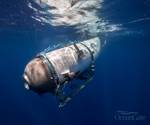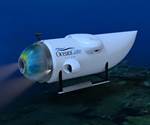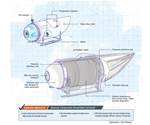OceanGate to build two new deep-sea submersibles
The company is planning construction for two new carbon fiber composite submersibles, Cyclops 3 and 4, to be rated for 6,000 meters.
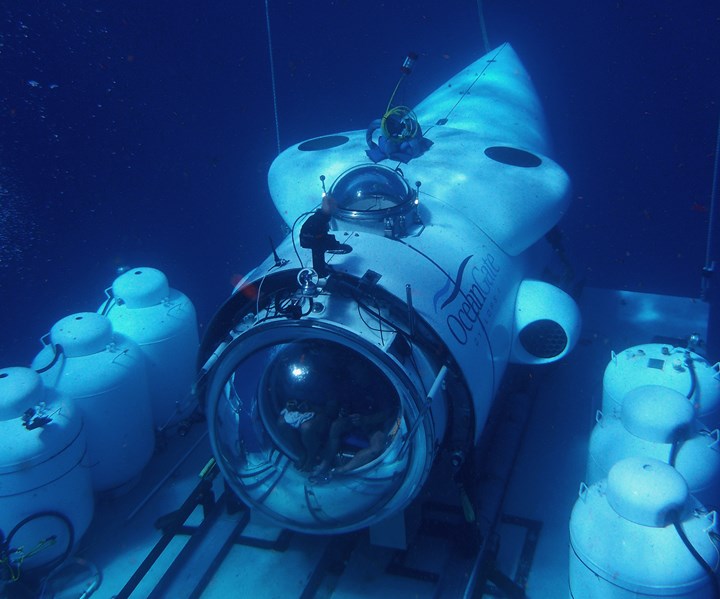
Cyclops 1. Source | OceanGate
OceanGate (Everett, Wash., U.S.) announced this week that it plans to build two new submersibles using its carbon fiber and titanium design, called Cyclops 3 and Cyclops 4, to meet increasing expeditionary, research and commercial demand for deep-sea manned submersibles. The company says it has begun construction planning for the two new submersibles, which are planned to be rated for up to 6,000 meters. OceanGate is also reportedly in discussions with two aerospace carbon fiber suppliers and manufacturers about the project.
Read more about the design and manufacture of OceanGate’s Cyclops 2 submersible: “Composite submersibles: Under pressure in deep, deep waters.”
“Increasing demand for Titanic missions, deep-sea research and environmental supervision of deep-sea mining have further reinforced the business case for adding to our dive capacity. Using a new aerospace manufacturing vendor and ensuring aerospace level quality and control will provide a depth capability of 6,000 meters using the same thickness of carbon fiber as Titan (Cyclops 2), and will allow the new OceanGate submersibles to reach 98% of the ocean,” says Stockton Rush, CEO of OceanGate. “Our second Cyclops-class submersible, Titan, has validated not only the carbon fiber and titanium design, but also the OceanGate real-time hull health monitoring system.”
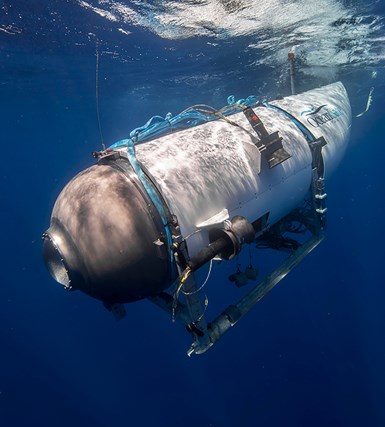
Titan. Source | OceanGate
According to Rush, OceanGate is receiving increasing interest in demand for submersibles, including its Titanic Survey Expeditions, which take tourists to the shipwreck of the Titanic.
“Mission specialists and partners are supporting our quest to make deep ocean exploration more safe, accessible, available and affordable, not only to scientific, governmental and commercial organizations, but also to citizen explorers,” says Rush.
While the two new submersibles are in production, OceanGate dive operations will continue throughout 2020 utilizing its three existing five-crewmember submersibles, Titan, Cyclops 1 and Antipodes.
OceanGate is currently accepting applications for expeditions for the Bahamas 2020 whale, shark and wreck missions with the University of The Bahamas and the Hudson Canyon Expedition off of the coast of New York City. Find out more at oceangateexpeditions.com.
Related Content
-
Plant tour: Arris Composites, Berkeley, Calif., U.S.
The creator of Additive Molding is leveraging automation and thermoplastics to provide high-volume, high-quality, sustainable composites manufacturing services.
-
Plant tour: Middle River Aerostructure Systems, Baltimore, Md., U.S.
The historic Martin Aircraft factory is advancing digitized automation for more sustainable production of composite aerostructures.
-
Recycling end-of-life composite parts: New methods, markets
From infrastructure solutions to consumer products, Polish recycler Anmet and Netherlands-based researchers are developing new methods for repurposing wind turbine blades and other composite parts.

.jpg;width=70;height=70;mode=crop)
